I rode the women-only subway car in Dubai, and while it has some plus points it's not something I'd want to see everywhere
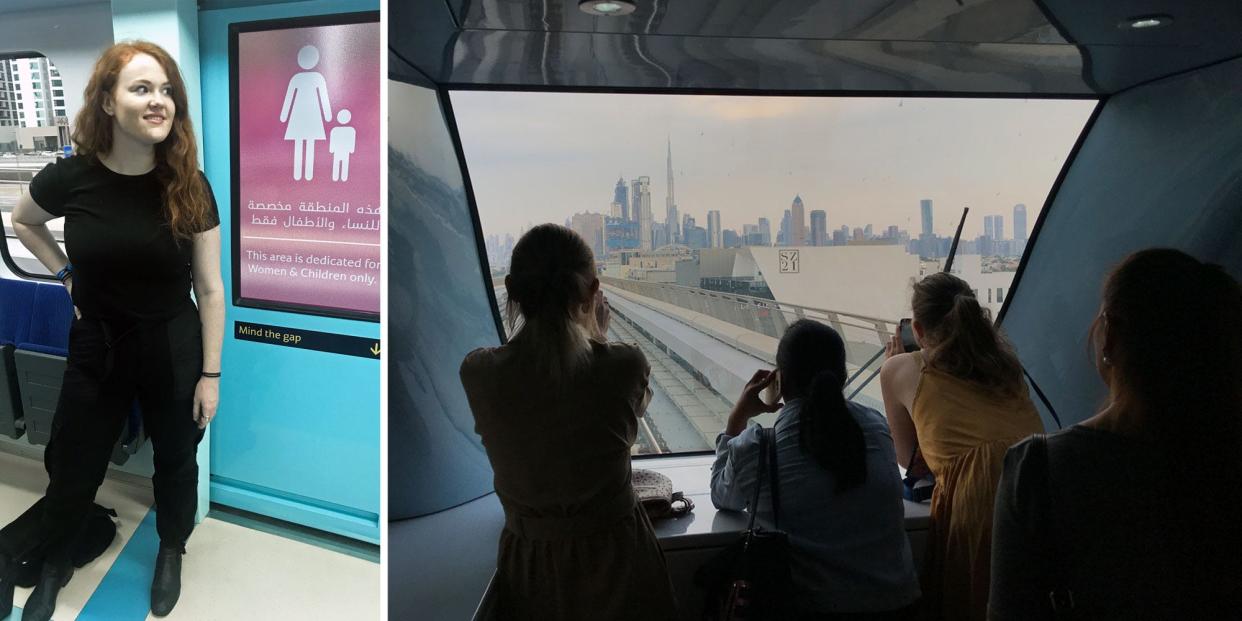
Sinéad Baker
Dubai's metro has a whole carriage just for women and children, where men can be fined for entering.
The rule did not seem to be strictly enforced, but the carriage full of women had a lot of advantages that I enjoyed.
But it's not a system that I'd necessarily want to be introduced elsewhere, and don't view it as the best solution to problems women face on public transport.
Dubai's shiny, driverless metro cuts through the city's skyscrapers and offers striking views of the city.
It offers three different classes of service: silver, gold, and women and children only.
During a recent trip to the city for the Dubai Airshow, I rode in the women's carriage and felt some distinct advantages, but it also had some clear problems and wasn't something I felt wanted to see elsewhere.
It's a solution that has been suggested in non-Islamic countries as a response to sexual assaults on public transport, but that has also been criticized as an admission of defeat in actually fighting the issue.
I also noticed that, even though men could be fined for coming in to the carriage — it didn't seem to be that strictly enforced, and my friend got in more trouble for drinking water than a man for travelling in the area.
Dubai's metro opened in 2009, and currently has two lines, the red and green lines, with 47 stations between them.
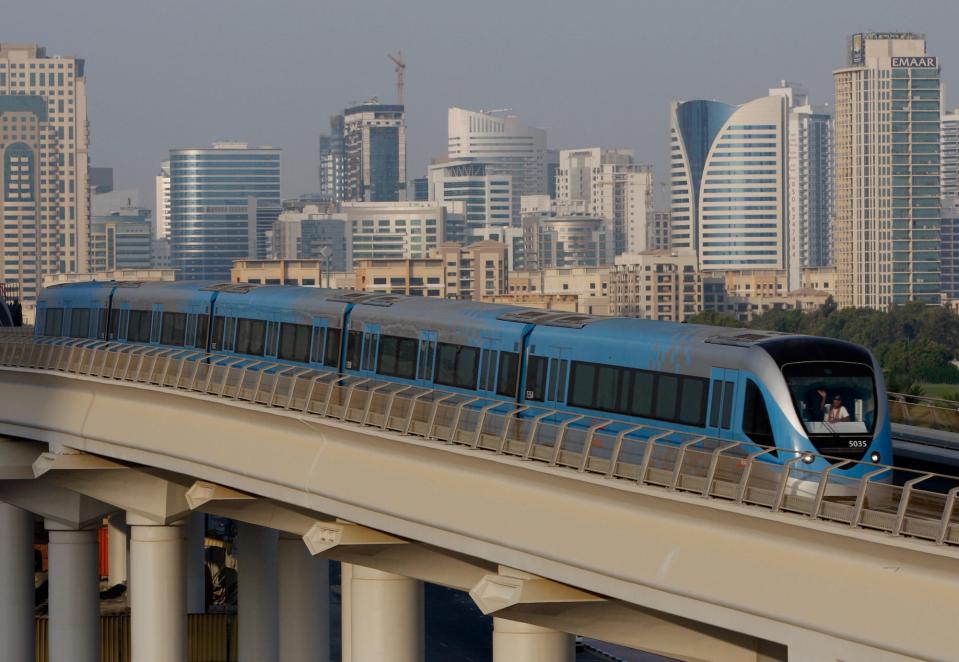
APThe metro mostly travels on raised platforms, cutting through the city's famous glittering skyscrapers. It connects the city's most famous areas, like the marina and downtown.
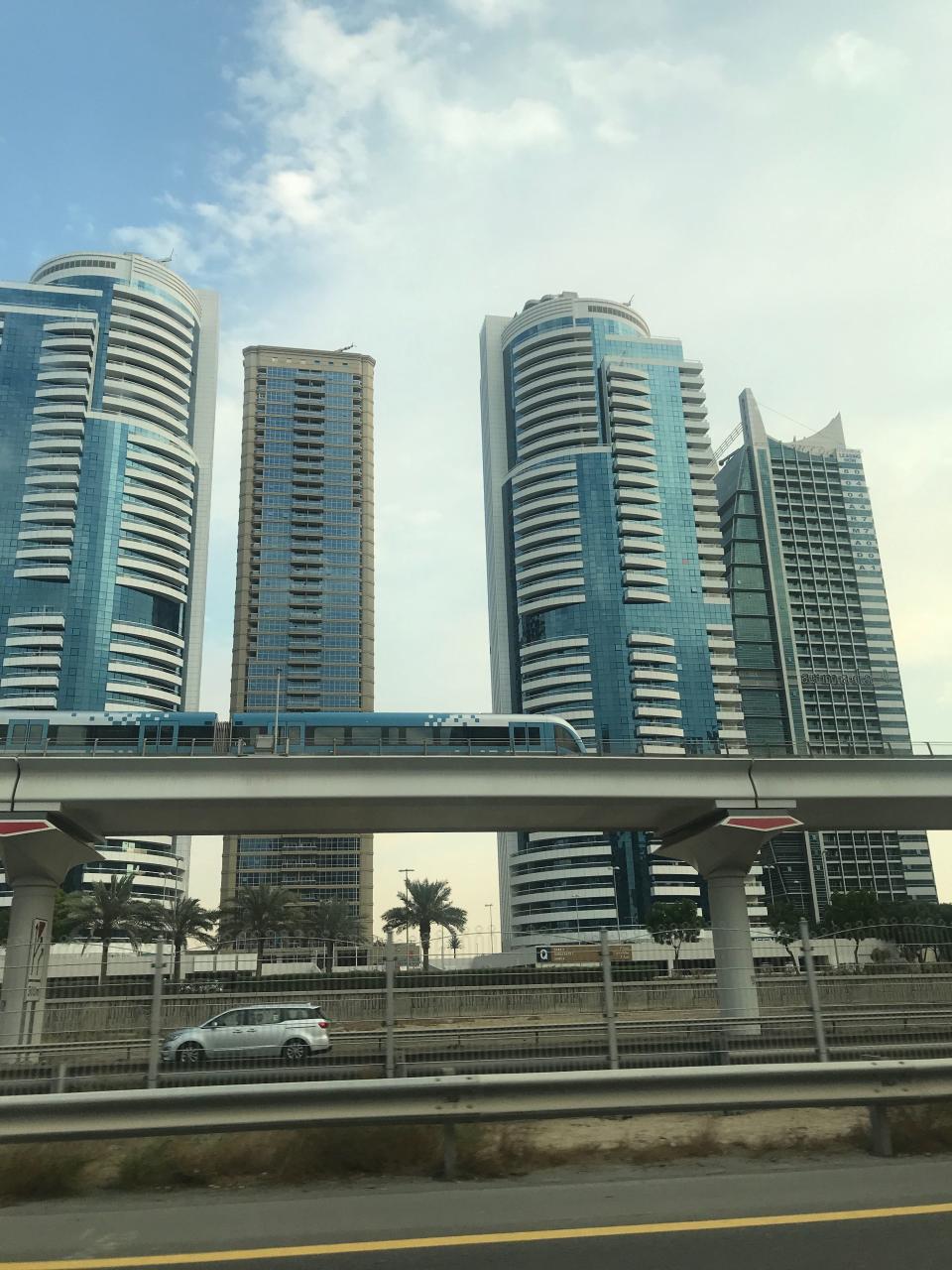
Sinéad Baker
The routes mean that the main areas, which are also the tourist areas, are connected, but it leaves parts of the city that are further from the sea isolated.
The stations look futuristic, made up of shiny glass and gold-colored panels. They make a statement on either side of the road, but I quickly started to find it quite boring that they all look the same.
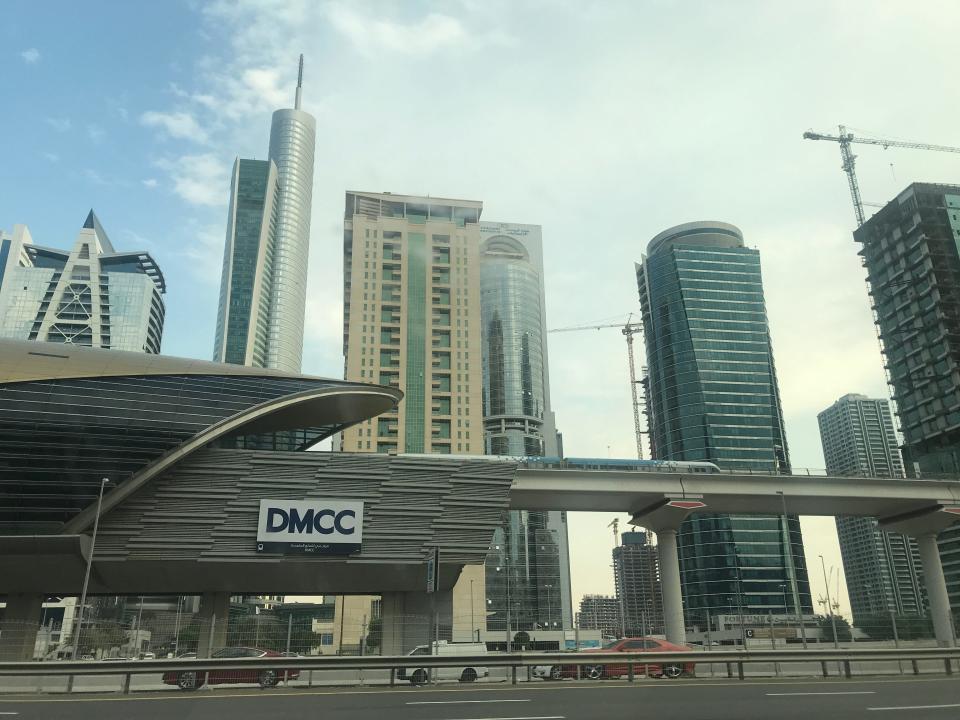
Sinéad BakerThe stations feel big, clean and modern inside.
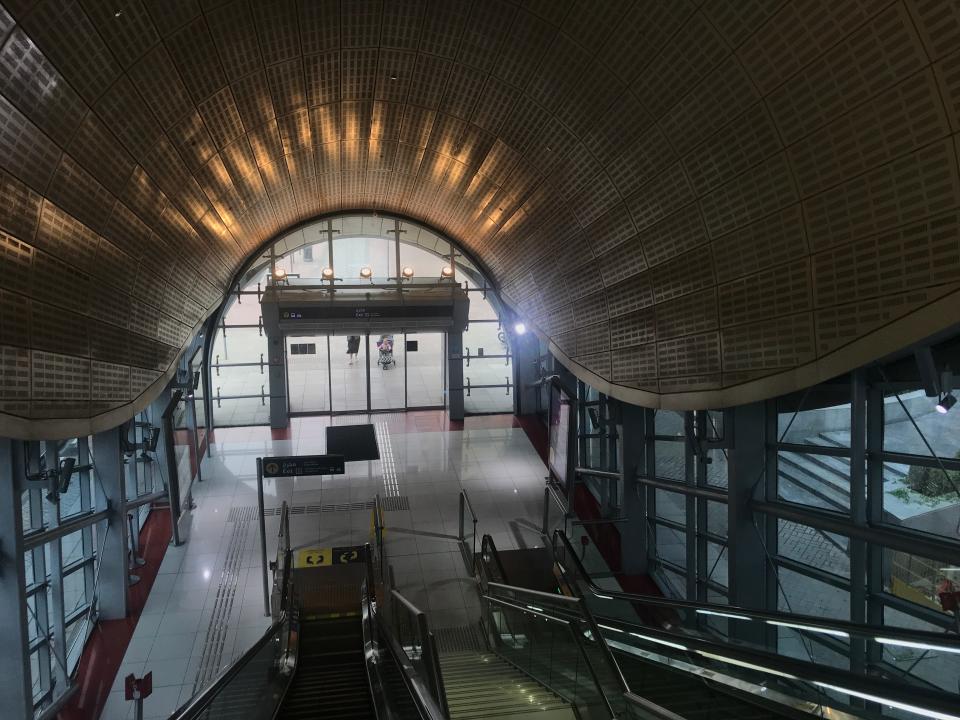
Sinéad BakerMost of the stations are overground, which means taking an escalator or the stairs up from street level ...
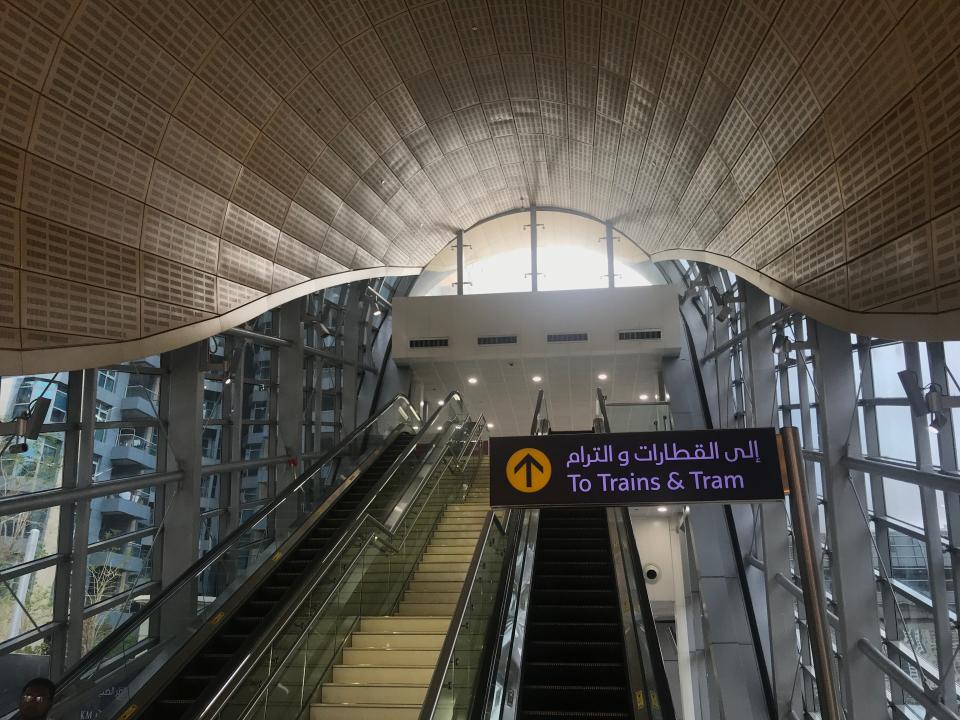
Sinéad Baker... and often walking across a walkway over the road so you can get to the train going in the right direction.
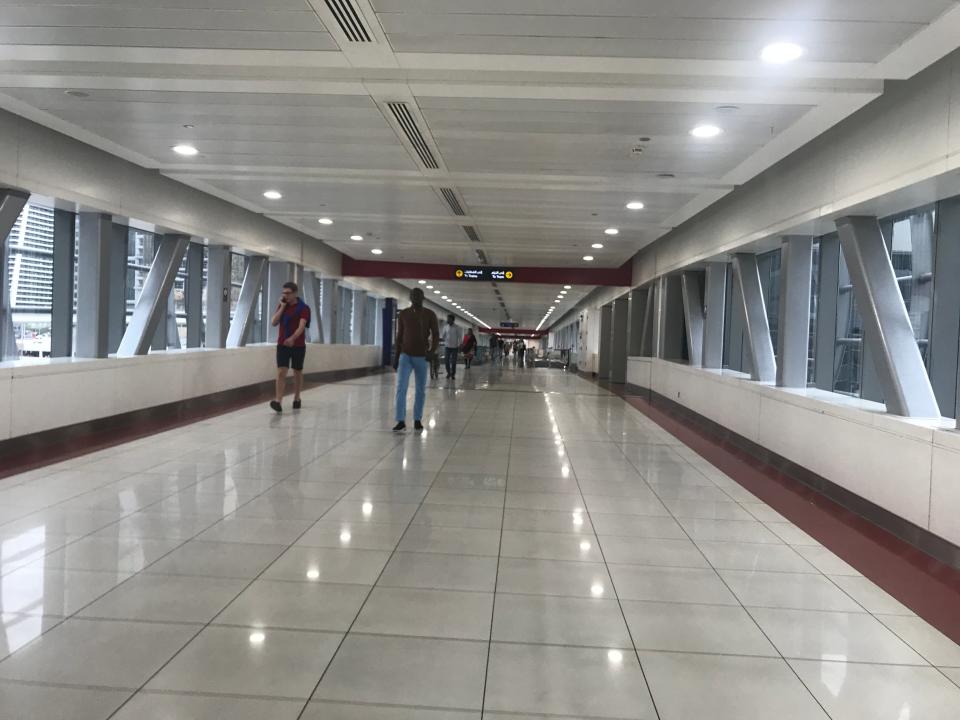
Sinéad BakerThe stations can get pretty busy, but they were efficient as you can tap in and out of the gates with a rechargeable card, much like the Oyster card on London's Underground
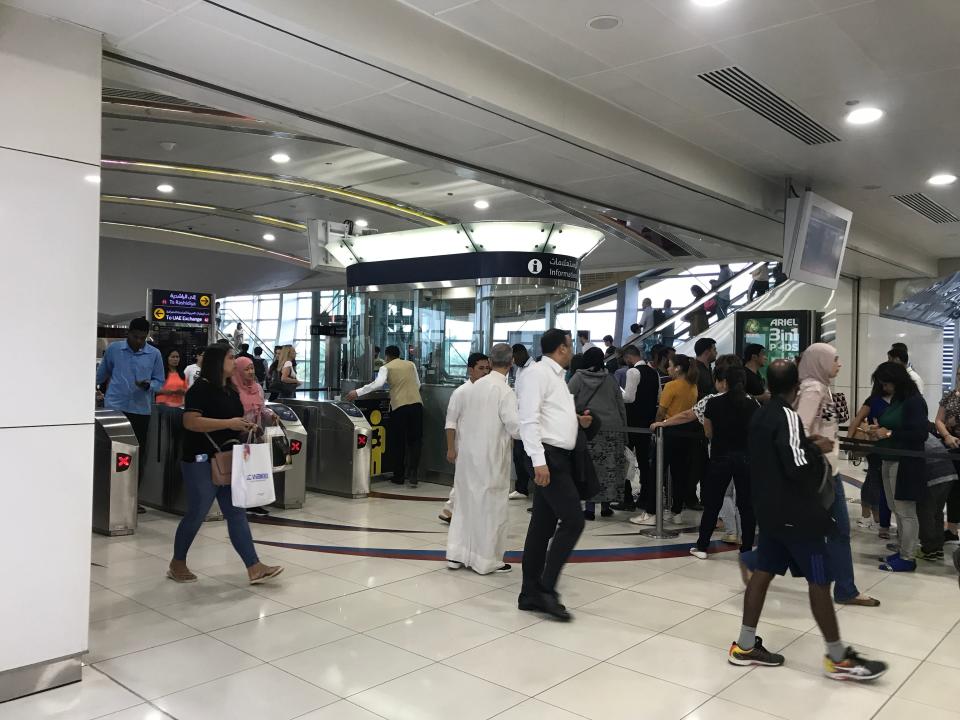
Sinéad Baker
A standard ticket that travels through just one zone costs 4 AED ($1).
This was a lot quicker than buying individual tickets, as I saw a queue for the machines in almost every station.

Sinéad BakerThere are also lifts up to the platforms, making them accessible.
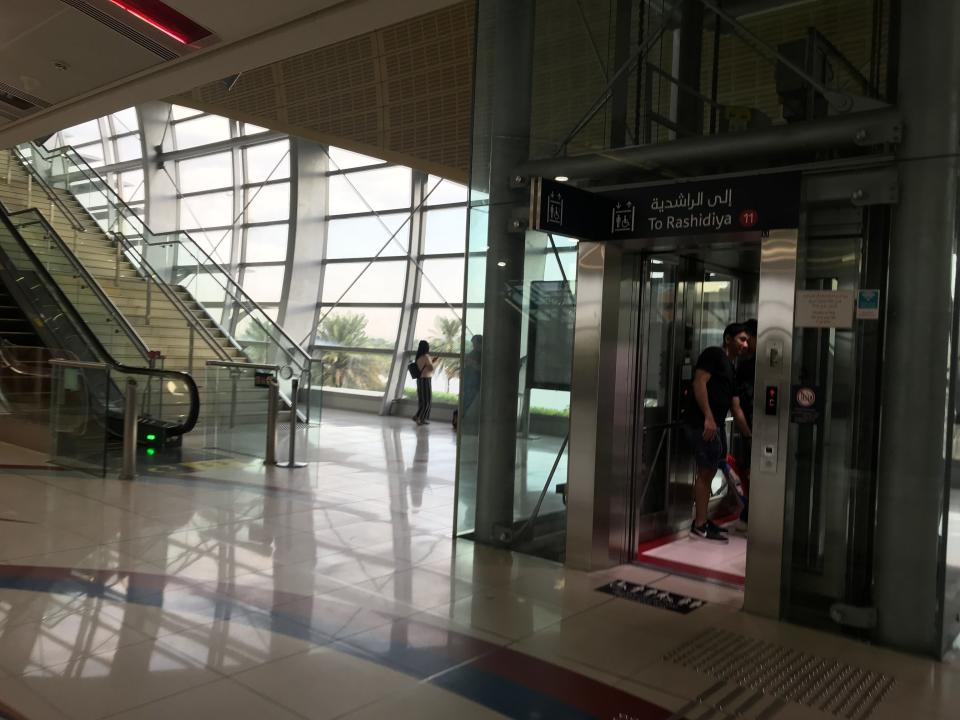
Sinéad BakerWhen you're on the platform, information screens tell you how far away your next train is.
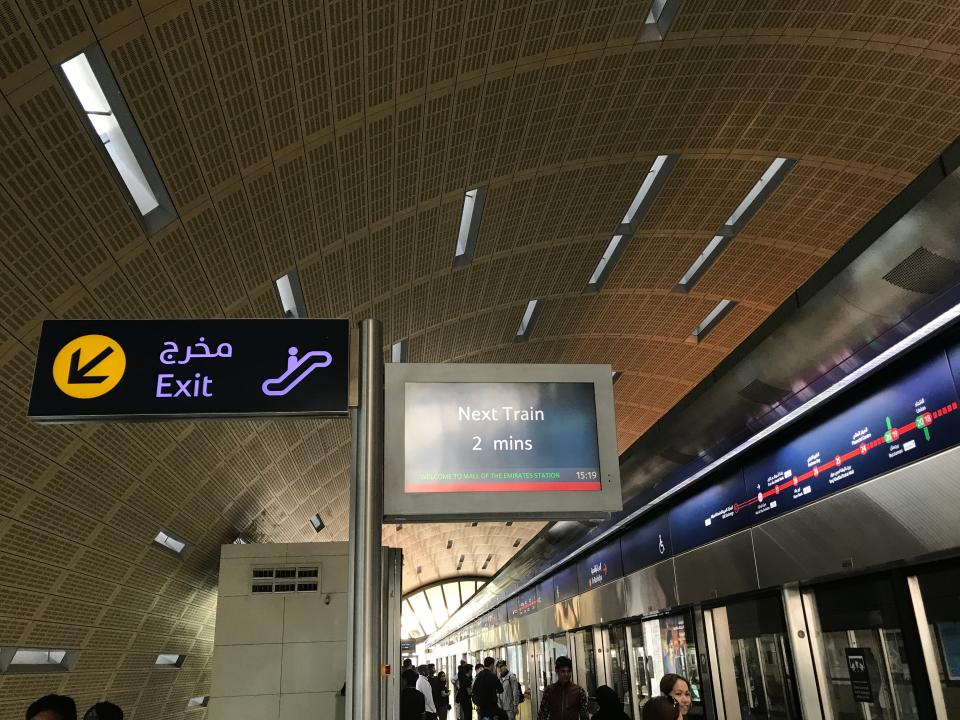
Sinéad BakerAnd glass doors keep you away from the tracks until the train has arrived.
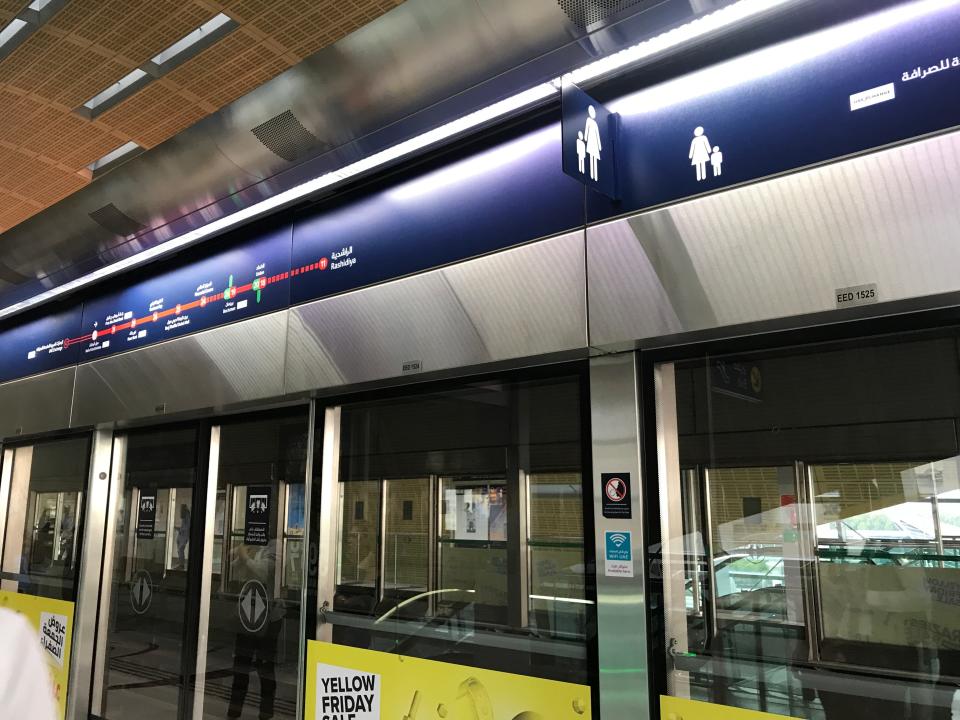
Sinéad BakerAnd you can get views of the Dubai skyline and the track extending into the distance.
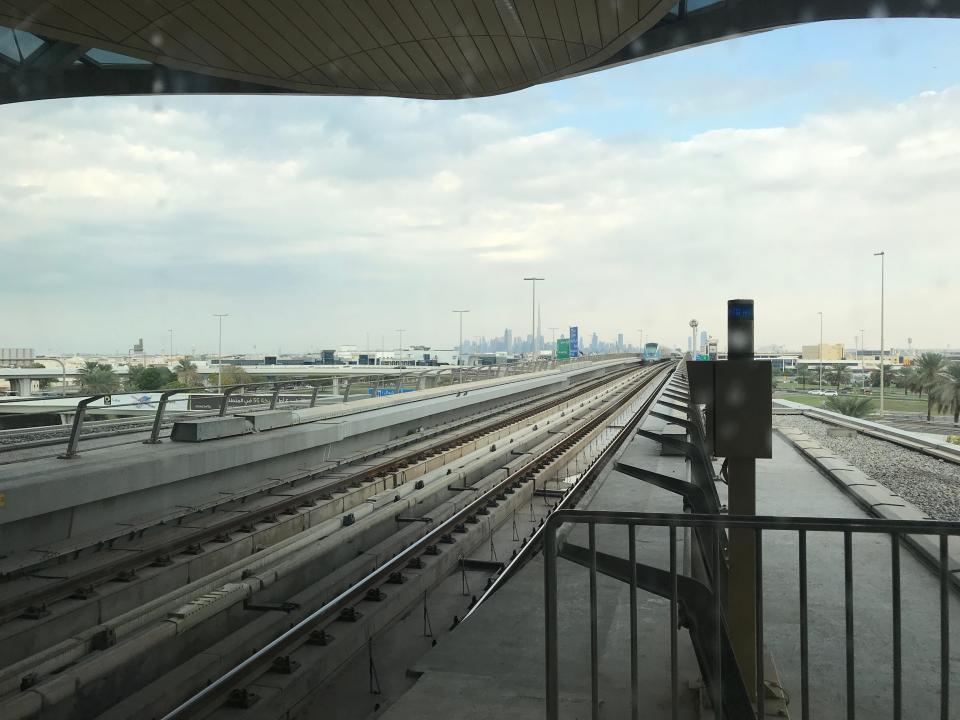
Sinéad BakerThe women's only carriage is at the very front or very back of the train, depending on what direction you're going in.
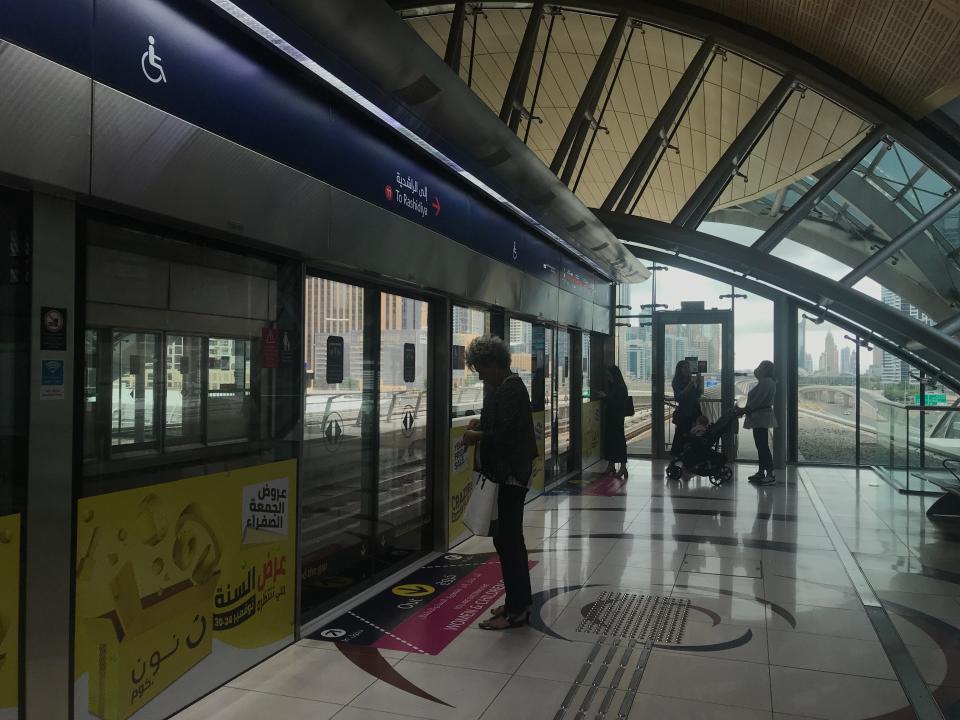
Sinéad BakerThe entrance is pretty clearly marked on the platform floor.
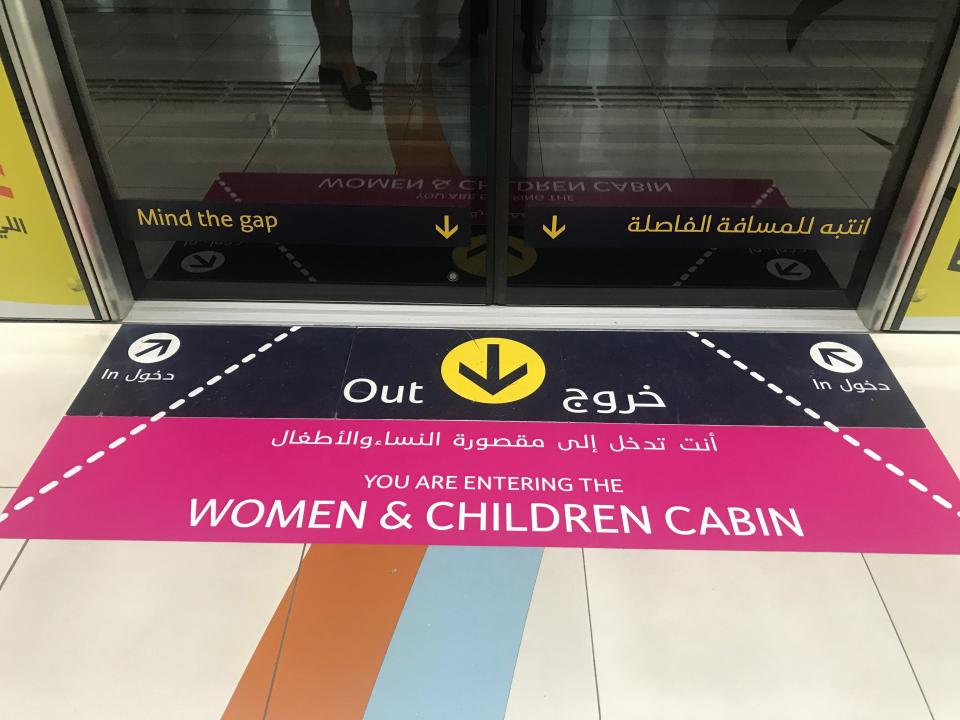
Sinéad BakerAnd on the carriage doors when the train pulls in.
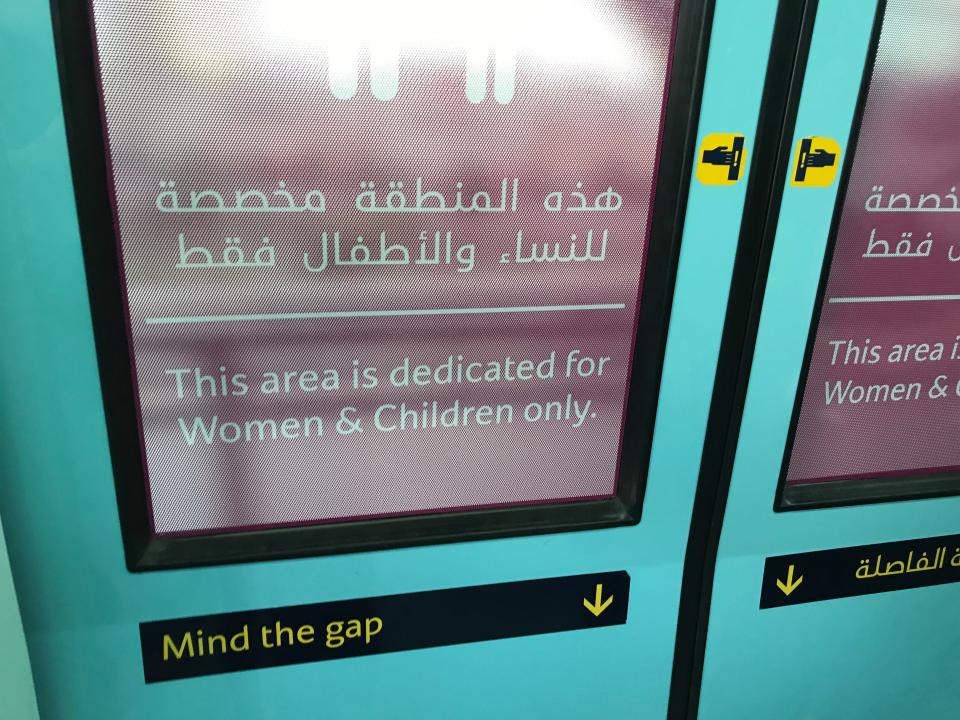
Sinéad BakerThe carriages are pretty spacious and have plenty of seats, but it still fills up pretty quickly during busy times.
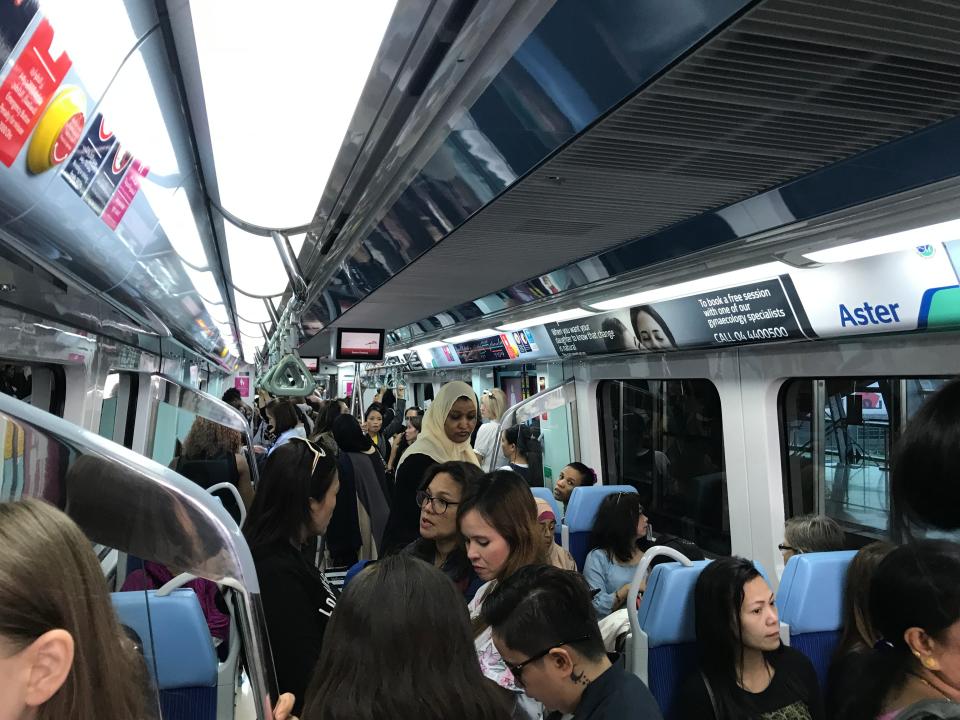
Sinéad BakerDubai's subway is actually driverless, so you can get some pretty great views in the women's carriage, like this one of the Burj Khalifa, the world's tallest building.
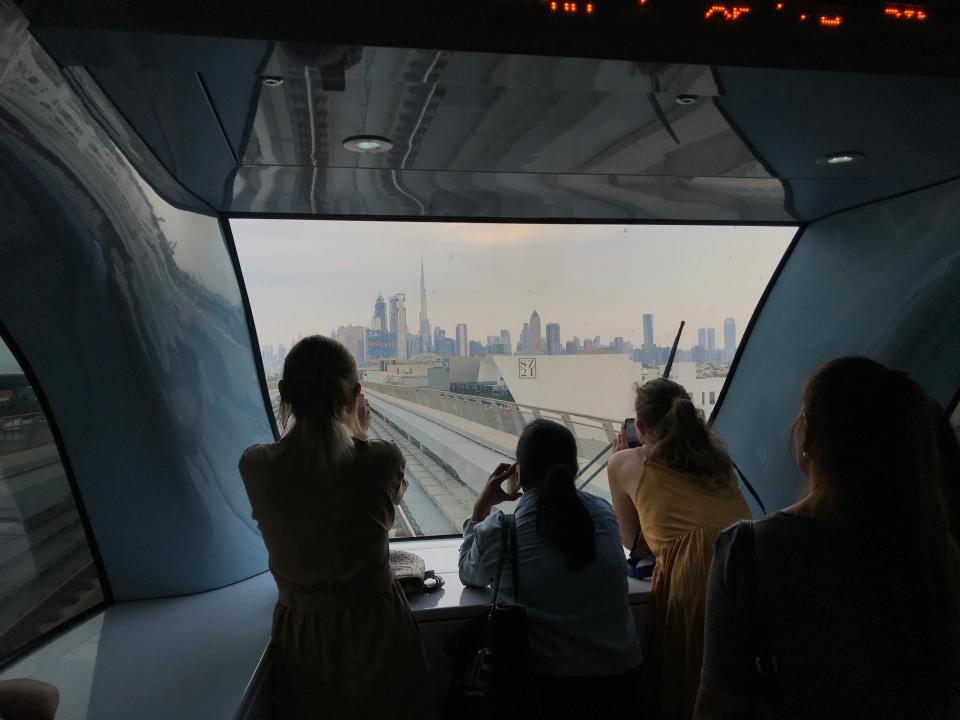
Sinéad BakerBut you also get much more boring views, like this one, of an empty track.
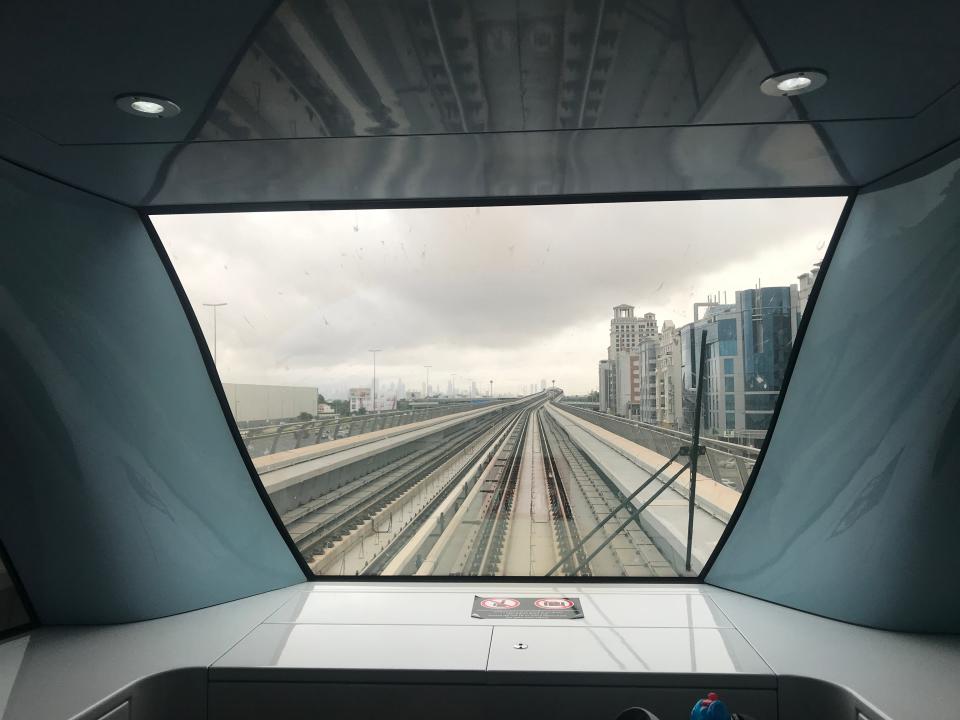
Sinéad BakerHere's a peek into the general carriage on a pretty quiet day.
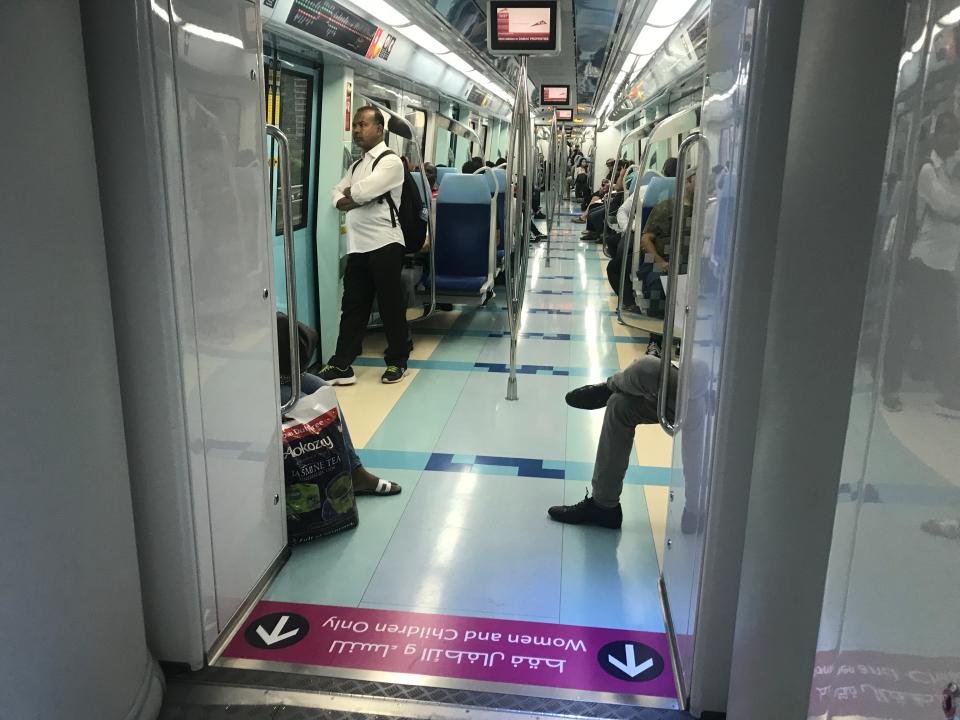
Sinéad BakerThere is no physical divide between the women and children's carriage and the general carriage, where women are also allowed to travel.
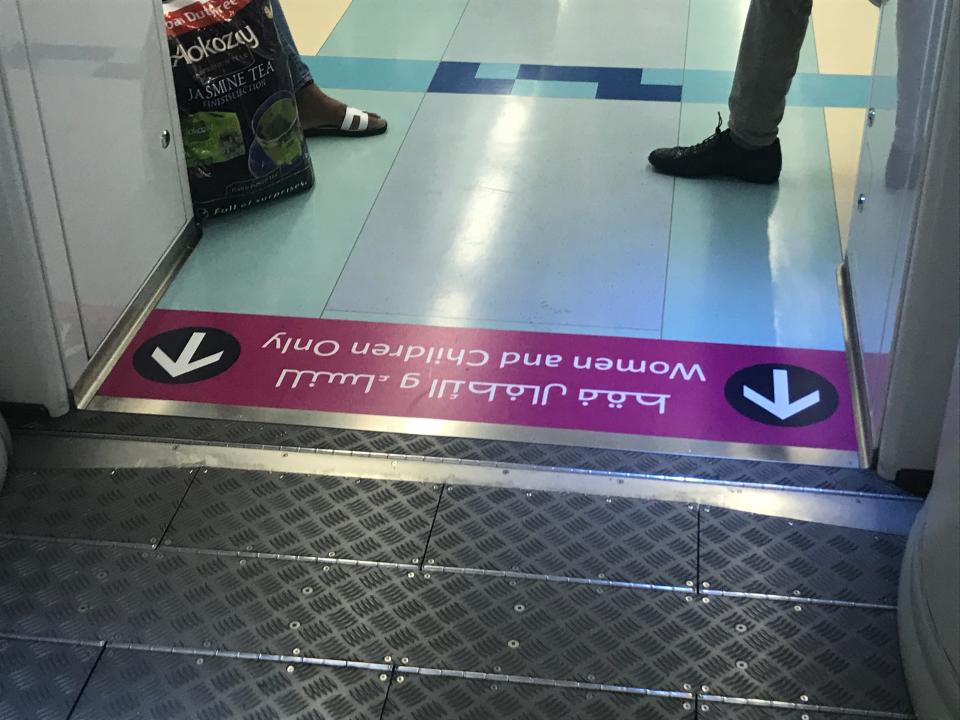
Sinéad BakerBut there are signs warning that men in the cabin can be fined 100 AED ($27) — which is the same fine that you can get for eating or drinking on board.
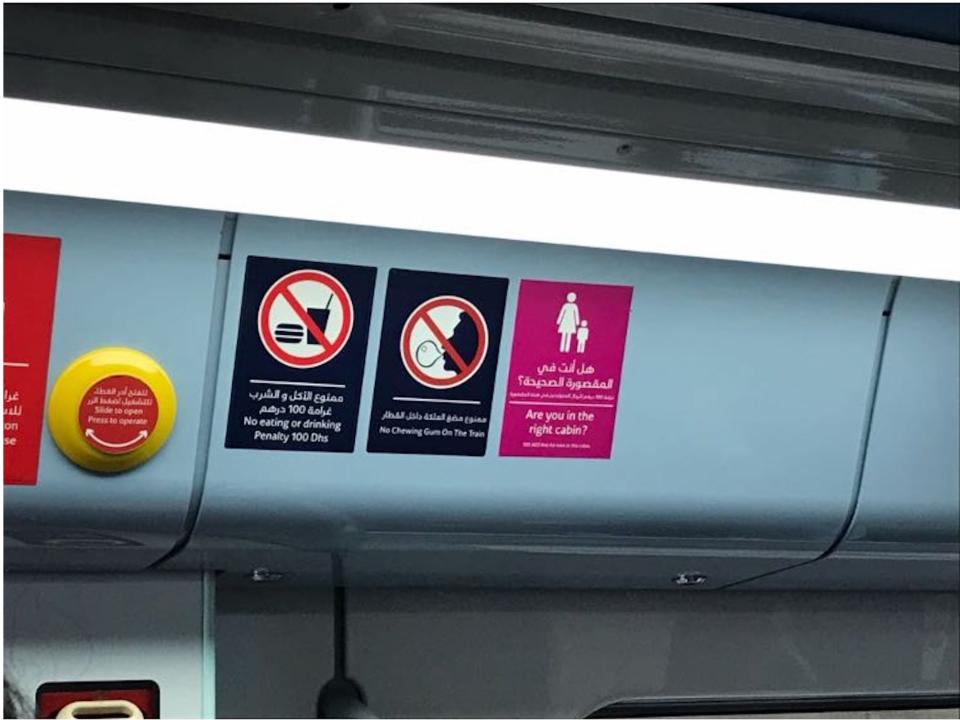
Sinéad BakerI never saw any staff actually enforcing the rule with men, and when a man did cross over into the carriage he was just glared at for a few minutes by women travellers. That was a much easier reception than my colleague got when she was strictly reprimanded by another passenger for taking a mouthful of water.
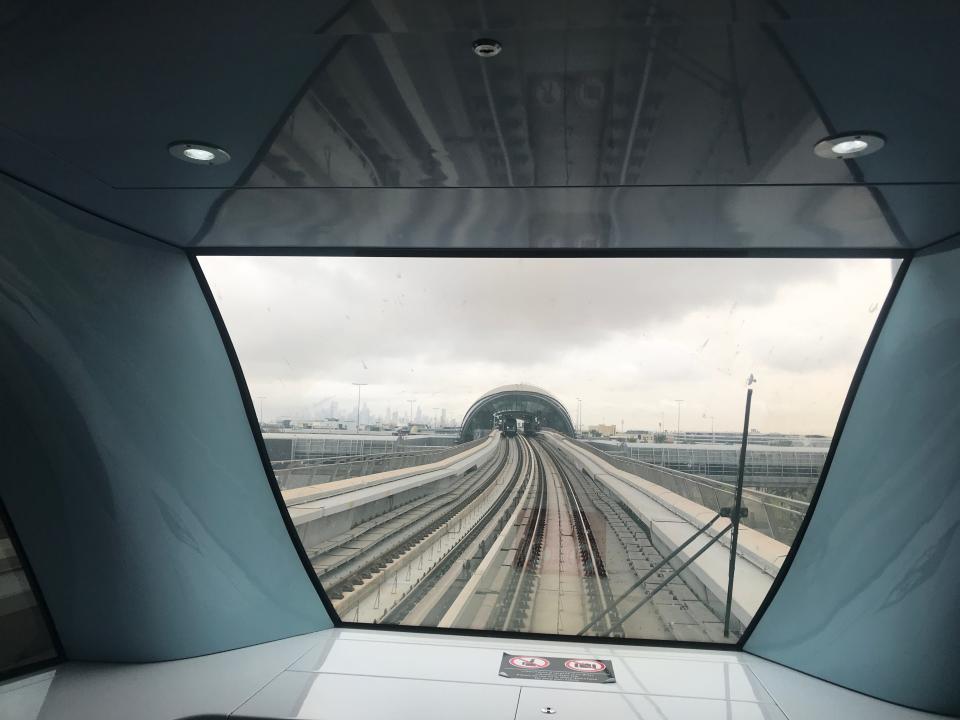
Sinéad BakerI also noticed that ads in the women carriage were specifically tailored to that audience.
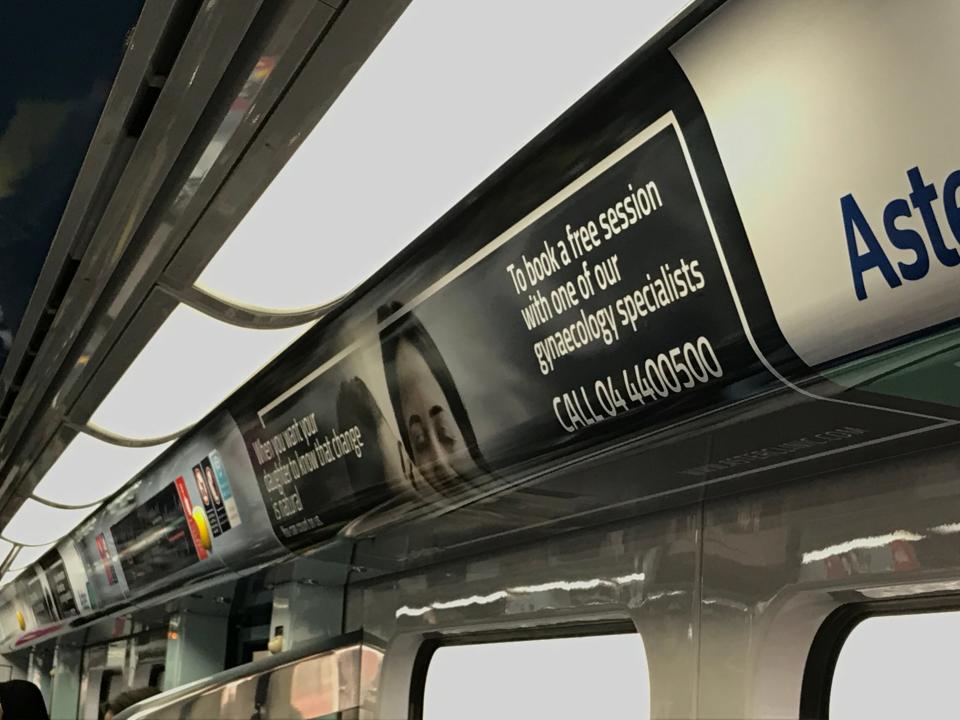
Sinéad BakerRiding in the women's carriage had lots of advantages: there was more space than in the general carriage. At five-feet-eight I felt tall, and I definitely felt less attention on me as an obviously foreign woman. Simply put: travelling with just a lot of other women felt easy.
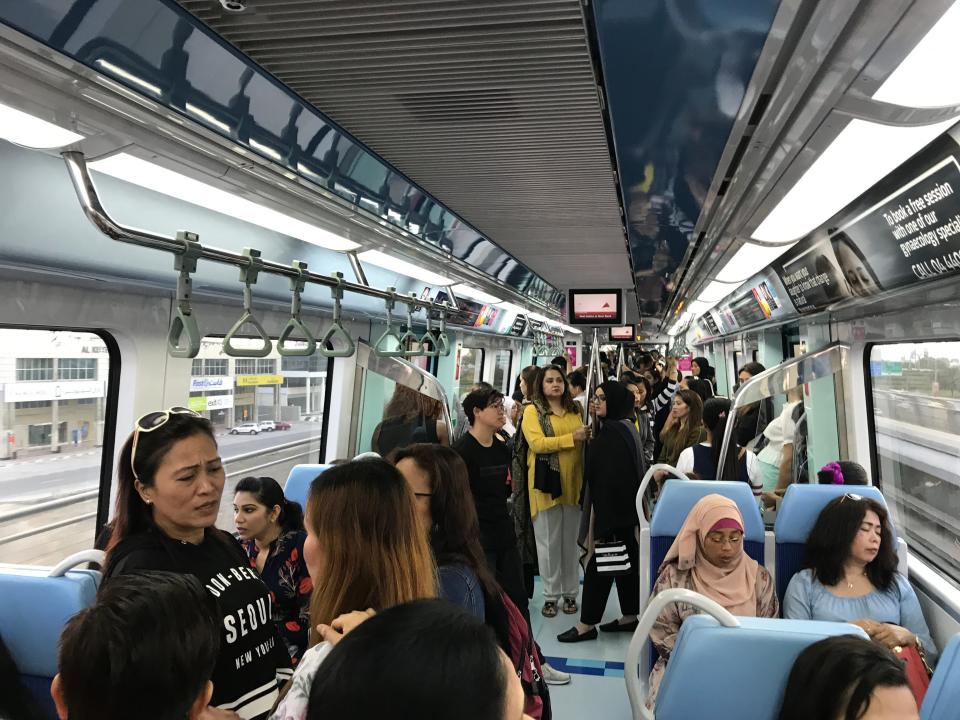
Sinéad BakerAnd the first thing that other women ask me when I tell them about it is whether it's something I would support introducing in other cities, like London, where I currently live. The idea had been floated before, but it wasn't popular and didn't get very far.
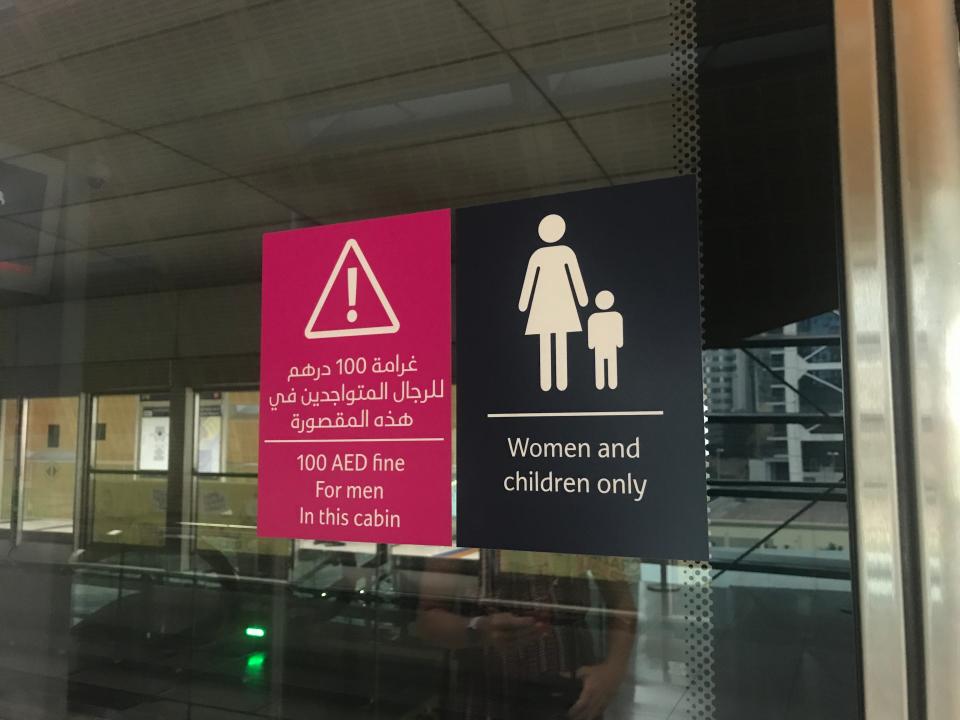
Sinéad Baker
When running to become leader of the Labour party in 2015, Jeremy Corbyn suggested introducing women-only train carriages to help protect women from sexual harassment.
But his rivals, both men and women, rejected the idea and claimed it would effectively distract from tackling the root causes of harassment on transport.
Liz Kendall, one of those rivals, said: "Everyone should be able to travel without fear of physical or verbal attacks, and we have much to do as a society to reach that point."
"But I don't believe that gender segregation is the answer. That'd be an admission of defeat, rather than a sustainable solution."
There are also women-only sections in public transport systems in non-Muslim countries, typically those like India and Japan, where rates of sexual assault are very high.
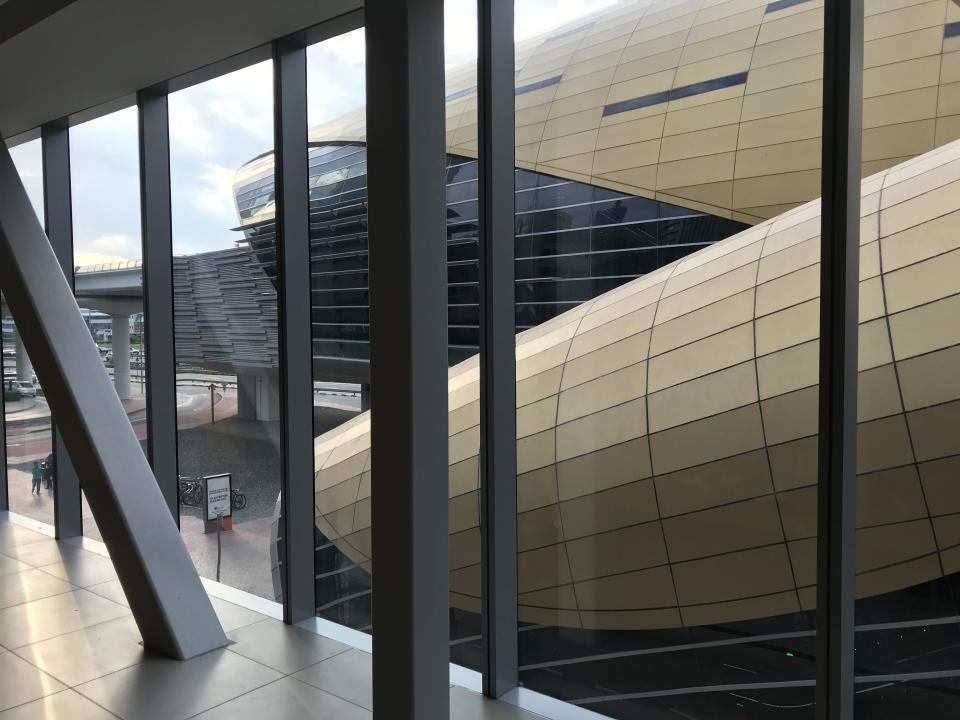
Sinéad BakerIn most cases, segregation over education and policing does not seem to be the correct solution, and it doesn't serve the fluidity of gender and expression, including people who do not conform to one expected gender identity. I'd also worry about what would happen if a woman was harmed when outside of a segregated carriage, and whether people would simply question where she was riding instead of engaging with the true cause of the assault and ensuring justice for the perpetrator.
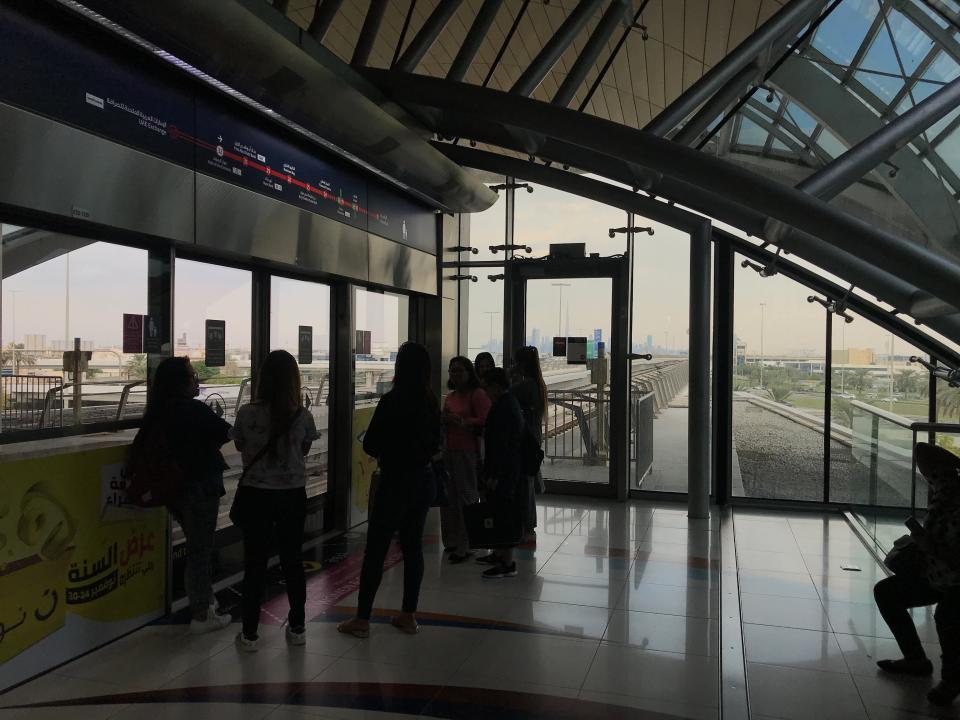
Sinéad BakerSo while a women-only carriage had some clear advantages, it's not the solution I'd advocate for in non-Islamic countries.
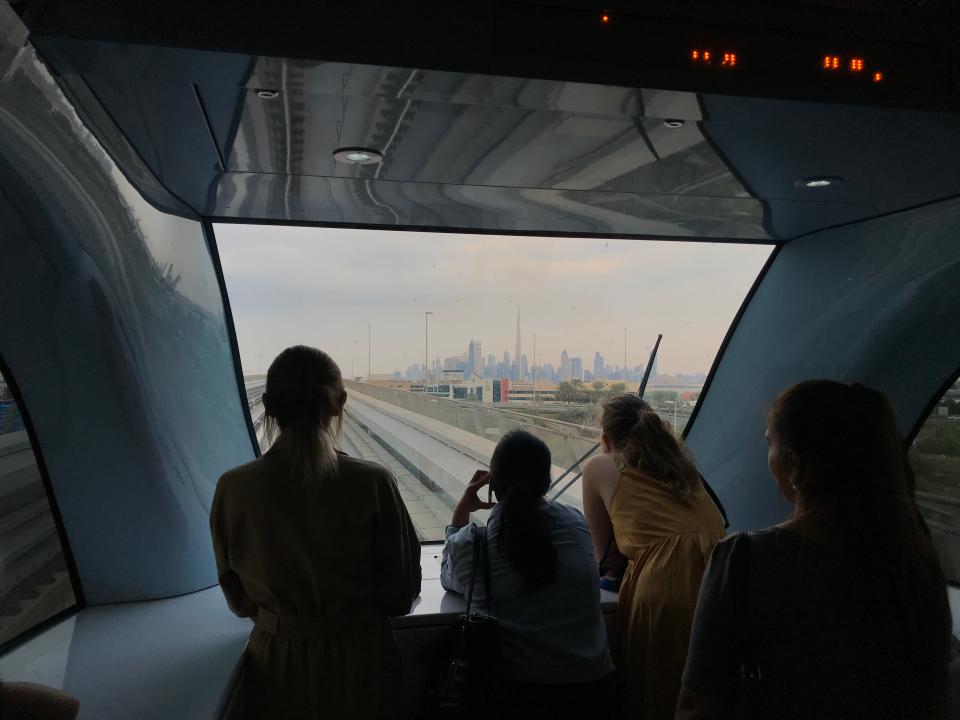
Sinéad Baker
Read the original article on Business Insider

